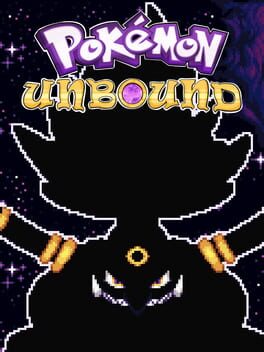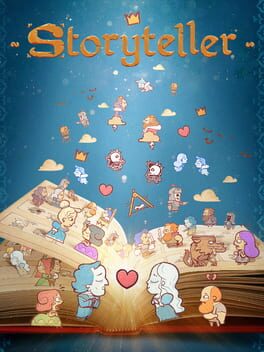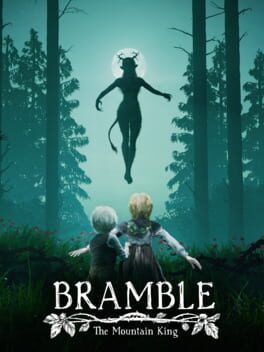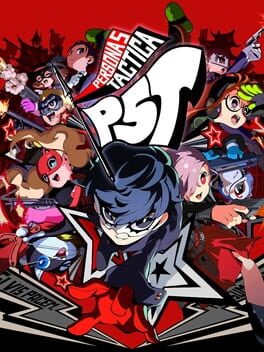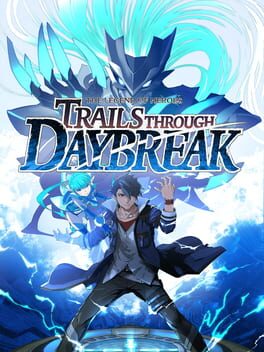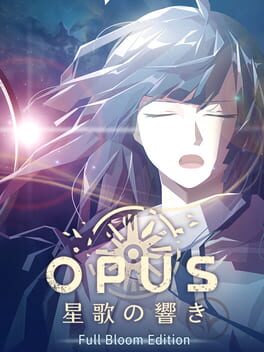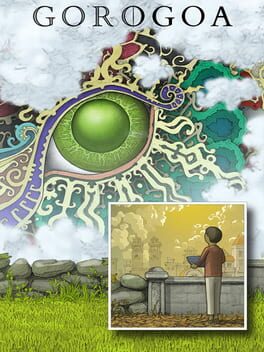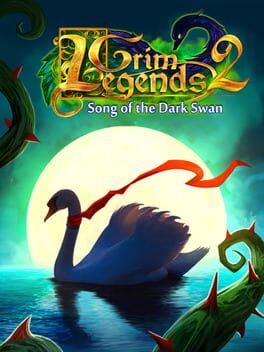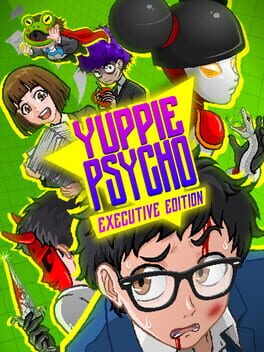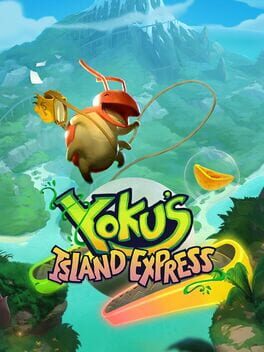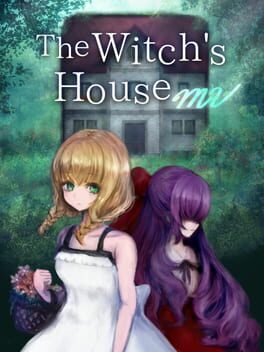inaytaobako
6 reviews liked by inaytaobako
Pokémon Unbound
2020
Pokemon Unbound is a bit of a strange case. It is an extremely impressive ROM hack, with so many features, all the pokemon from generations 1-8, an original soundtrack, and so much more original content. It sets out to be an original Pokemon game in all ways other than introducing new monsters, and by that metric, it succeeds. And the fact that the game comes so far makes me all the more disappointed that I did not enjoy the game nearly as much as I wish I did.
The biggest disconnect I had with this game is in its storytelling. Pokemon Unbound is very Reddit, and it is up to you to decide if that is a good or a bad thing. For me, it was a bad thing. The game is very interested in one-upping the mainline games in terms of features and scale, often to great success, but sometimes in such a way that I think it loses the forest for the trees. One of the best features of the game are its dynamic difficulty settings that allow the player to customize their own experience, even after creating a save file, which is absolutely wonderful and something that no Pokemon game has ever offered. But one of my least favorite features is the excessively heightened gravity of the world. During the campaign, Hoopa frequently uses its magic rings to summon legendary pokemon for you to face in battle, which can be cool but it happens so often that I think it neuters the impact of encountering legendary pokemon overall. One of my least favorite moments of the game was when you are sent to the distortion world, with absolutely no buildup. The distortion world of Pokemon Unbound features all the annoying puzzles that make its appearance in Platinum a slog to get through, and it has none of the climactic buildup that at least makes it a conceptually exciting setpiece in Platinum. The game is so quick to borrow notable Pokemon setpieces, such as the distortion world, legendary pokemon, the ultimate weapon from XY, and even making your starter a pseudo-legendary, without understanding that they don't carry the same narrative punch in this context when they are given so little buildup.
A couple other idiosyncrasies of this game are the very strange NPCs you will encounter and the darker tone of the game. These are problems I have with the game that are very opinion based, but I see them as flaws as they undermine the utopian beauty of the official Pokemon games. Probably my least favorite moment of the whole game was when the evil team of this game forcibly fused some Gabite with hostage humans to create human-pokemon monstrosities. You will encounter and battle these poke-hybrids a few times in the story before eventually, quite literally, putting them out of their misery and turning them to dust. If you're 12 maybe you'll think this is badass or whatever, but because I'm older than Five Nights at Freddy's this left a very bad taste in my mouth. Some NPCs felt similarly juvenile, most of all the first gym leader. The first gym is a grass gym and its leader is a stereotypical stoner. In addition to his chill dude dialect, the gym is filled with the fog weather condition and the gym leaders last pokemon is a Weedle. 'What if [family friendly character/franchise] did drugs' is such an unfunny and unoriginal gag that I would have thought this whole gym to be ironic if it weren't for how serious the game takes itself. My other least favorite characters were the elite four, specifically the ground-type specialist "Moleman" who references a race of mole-people who live underground that will one day show the surface dwelling people their wrath, and the ghost-type specialist that is a literal reanimated corpse. These characters are exceptionally sore thumbs in the world of Unbound and shatter my immersion.
Despite how much these missteps bothered me, there is a lot to like about this game. The robust difficulty settings that I mentioned are one of the game's best features. I really enjoyed the challenging boss battles on the "difficult" setting, and after getting stuck on the elite four, I was so thankful that I was allowed to turn down the difficulty to "vanilla" to allow me to finish the game without having to grind my team up and grind money for EV boosting items. There are also megas, Z-moves, raid dens, and the DexNav, to name a few more features that are impressive for a FireRed ROM hack. My favorite part of the whole experience is the unique gym battles, which all have special conditions that favor the gym's type-specialty. The flying gym has a permanent tailwind that applies to all flying types, the electric/steel gym has a permanent magnetic floor that makes all electric/steel types levitate, the normal gym is conducted through inverse battles to make normal type pokemons' STAB unresistable, and so on. This addition to the gym challenge is very creative and sent me back to the drawing board more than once to figure out a better strategy to defeat the gym leaders. I sometimes had to swap out some party members for gym fights but, with the exception of the elite four, it was easy to find pokemon to fill the gaps in my team at already decent levels. The "difficult" difficulty was enjoyable all the way up to the elite four, which unfortunately has a pretty large level and difficulty spike, but other than that, no grinding was necessary. With how much Unbound is ready to show up the official games, it was an unfortunate surprise that bottlecaps, rare candies, vitamins, heart scales, and mints are as annoying to obtain (if not more) as they are in the real games. If customizing pokemon were easier I would have loved to restructure my team to finish the playthough on "difficult" all the way through, but it just didn't feel worth my time to grind for multiple hours to get the money and exp necessary to stand a chance against the elite four.
Overall, I did mostly enjoy Pokemon Unbound. I was expecting it to be incredible based on how the people on Reddit were talking about it, which makes sense I guess considering how the game has a very Reddit design. I definitely wouldn't recommend this game to people that enjoy Pokemon campaigns for the reasons I do (its utopian fantasy, friendship, and positive vibes), but don't let that stop you if you think 'Pokemon but dark and gritty' sounds fun. The features in this game are undeniably impressive and I would easily be rating this game higher if it didn't undermine some of my favorite parts of the Pokemon franchise.
The biggest disconnect I had with this game is in its storytelling. Pokemon Unbound is very Reddit, and it is up to you to decide if that is a good or a bad thing. For me, it was a bad thing. The game is very interested in one-upping the mainline games in terms of features and scale, often to great success, but sometimes in such a way that I think it loses the forest for the trees. One of the best features of the game are its dynamic difficulty settings that allow the player to customize their own experience, even after creating a save file, which is absolutely wonderful and something that no Pokemon game has ever offered. But one of my least favorite features is the excessively heightened gravity of the world. During the campaign, Hoopa frequently uses its magic rings to summon legendary pokemon for you to face in battle, which can be cool but it happens so often that I think it neuters the impact of encountering legendary pokemon overall. One of my least favorite moments of the game was when you are sent to the distortion world, with absolutely no buildup. The distortion world of Pokemon Unbound features all the annoying puzzles that make its appearance in Platinum a slog to get through, and it has none of the climactic buildup that at least makes it a conceptually exciting setpiece in Platinum. The game is so quick to borrow notable Pokemon setpieces, such as the distortion world, legendary pokemon, the ultimate weapon from XY, and even making your starter a pseudo-legendary, without understanding that they don't carry the same narrative punch in this context when they are given so little buildup.
A couple other idiosyncrasies of this game are the very strange NPCs you will encounter and the darker tone of the game. These are problems I have with the game that are very opinion based, but I see them as flaws as they undermine the utopian beauty of the official Pokemon games. Probably my least favorite moment of the whole game was when the evil team of this game forcibly fused some Gabite with hostage humans to create human-pokemon monstrosities. You will encounter and battle these poke-hybrids a few times in the story before eventually, quite literally, putting them out of their misery and turning them to dust. If you're 12 maybe you'll think this is badass or whatever, but because I'm older than Five Nights at Freddy's this left a very bad taste in my mouth. Some NPCs felt similarly juvenile, most of all the first gym leader. The first gym is a grass gym and its leader is a stereotypical stoner. In addition to his chill dude dialect, the gym is filled with the fog weather condition and the gym leaders last pokemon is a Weedle. 'What if [family friendly character/franchise] did drugs' is such an unfunny and unoriginal gag that I would have thought this whole gym to be ironic if it weren't for how serious the game takes itself. My other least favorite characters were the elite four, specifically the ground-type specialist "Moleman" who references a race of mole-people who live underground that will one day show the surface dwelling people their wrath, and the ghost-type specialist that is a literal reanimated corpse. These characters are exceptionally sore thumbs in the world of Unbound and shatter my immersion.
Despite how much these missteps bothered me, there is a lot to like about this game. The robust difficulty settings that I mentioned are one of the game's best features. I really enjoyed the challenging boss battles on the "difficult" setting, and after getting stuck on the elite four, I was so thankful that I was allowed to turn down the difficulty to "vanilla" to allow me to finish the game without having to grind my team up and grind money for EV boosting items. There are also megas, Z-moves, raid dens, and the DexNav, to name a few more features that are impressive for a FireRed ROM hack. My favorite part of the whole experience is the unique gym battles, which all have special conditions that favor the gym's type-specialty. The flying gym has a permanent tailwind that applies to all flying types, the electric/steel gym has a permanent magnetic floor that makes all electric/steel types levitate, the normal gym is conducted through inverse battles to make normal type pokemons' STAB unresistable, and so on. This addition to the gym challenge is very creative and sent me back to the drawing board more than once to figure out a better strategy to defeat the gym leaders. I sometimes had to swap out some party members for gym fights but, with the exception of the elite four, it was easy to find pokemon to fill the gaps in my team at already decent levels. The "difficult" difficulty was enjoyable all the way up to the elite four, which unfortunately has a pretty large level and difficulty spike, but other than that, no grinding was necessary. With how much Unbound is ready to show up the official games, it was an unfortunate surprise that bottlecaps, rare candies, vitamins, heart scales, and mints are as annoying to obtain (if not more) as they are in the real games. If customizing pokemon were easier I would have loved to restructure my team to finish the playthough on "difficult" all the way through, but it just didn't feel worth my time to grind for multiple hours to get the money and exp necessary to stand a chance against the elite four.
Overall, I did mostly enjoy Pokemon Unbound. I was expecting it to be incredible based on how the people on Reddit were talking about it, which makes sense I guess considering how the game has a very Reddit design. I definitely wouldn't recommend this game to people that enjoy Pokemon campaigns for the reasons I do (its utopian fantasy, friendship, and positive vibes), but don't let that stop you if you think 'Pokemon but dark and gritty' sounds fun. The features in this game are undeniably impressive and I would easily be rating this game higher if it didn't undermine some of my favorite parts of the Pokemon franchise.
Storyteller
2023
A whimsically entertaining toy box recreating and remixing a lot of classic literary stories and tropes. The puzzle prompts are just vague enough to make solving them feel satisfying, but rarely stumping. Its literary allusions and the jokes it makes with them are sophisticated enough to feel rewarding to pick up on, but still very familiar overall; the resolution to Nietzsche’s first appearance was particularly funny and on-the-nose. The animation while swapping out various actors and scenes is charming, and its technical seamlessness makes experimenting feel frictionless. That’s especially helpful during the epilogue’s bonus chapters and stamp challenges, as focused as they are on mischievously recasting prior chapters in a new light.
This is also the perfect sort of game for Netflix to offer on mobile and I’m glad they did. It’s rewarding to play even just for a few minutes, great with touch controls, and its brief overall playtime isn’t a value consideration when it comes with an existing subscription.
This is also the perfect sort of game for Netflix to offer on mobile and I’m glad they did. It’s rewarding to play even just for a few minutes, great with touch controls, and its brief overall playtime isn’t a value consideration when it comes with an existing subscription.
The Nordic folklore setting is distinctive and great, filled with gnomes and trolls and rock giants and gruesome horrors. The lighting and foliage can also look pretty great at times, especially for a smaller game.
Beyond those positives, though, this is like a museum of every bad game mechanic that AAA action adventure games from 15 years ago used, not because they were fun but because they seemed cinematic. Red light green light stealth sections, crossing long balance beams you can’t fall off of, sliding sections with one-hit death obstacles along the way and a jerky dynamic camera, 3 phase pattern bosses also with one-hit deaths (never a sign of design confidence when your boss fights all have like 5 checkpoints each), and “puzzle” rooms with only one highlighted piece of scenery that can be interacted with. And never mind any of the design refinements these sort of mechanics have seen since the late 2000s, Bramble is fine offering the rudimentary v1.0 incarnation. Why be able to jump up a wall climb section when you can just hold the stick in one position for 30 seconds instead? More unfortunate are the euro jank controls, so you don’t even get the comparatively polished controls of the old AAA games it’s copying from.
I still had some goodwill for this going into the final stretch, but the last few bosses are such tedious trial-and-error slogs and I couldn’t wait to hit credits and uninstall this.
Beyond those positives, though, this is like a museum of every bad game mechanic that AAA action adventure games from 15 years ago used, not because they were fun but because they seemed cinematic. Red light green light stealth sections, crossing long balance beams you can’t fall off of, sliding sections with one-hit death obstacles along the way and a jerky dynamic camera, 3 phase pattern bosses also with one-hit deaths (never a sign of design confidence when your boss fights all have like 5 checkpoints each), and “puzzle” rooms with only one highlighted piece of scenery that can be interacted with. And never mind any of the design refinements these sort of mechanics have seen since the late 2000s, Bramble is fine offering the rudimentary v1.0 incarnation. Why be able to jump up a wall climb section when you can just hold the stick in one position for 30 seconds instead? More unfortunate are the euro jank controls, so you don’t even get the comparatively polished controls of the old AAA games it’s copying from.
I still had some goodwill for this going into the final stretch, but the last few bosses are such tedious trial-and-error slogs and I couldn’t wait to hit credits and uninstall this.
Persona 5 Tactica
2023
For me, the Persona 5 burnout isn't so much of the amount of spin-offs, it's the stories of them. Like Strikers, this one focuses on rebelling against oppressing forces (this time in a new metaverse with places called Kingdoms) and standing up for what's right. Then you come up against an oppressive god-like being who says "no it's the will of the people they want my variation of being ruled under my thumb" and then you say no to that god-like being for the 5th time and it dies and then the credits roll. Normally I wouldn't talk about the true antagonist like that but if you're coming from the Persona 5 spin-off era you knew it was coming and it's far from a surprise at this point. (Don't worry, there are no specific story spoilers in this review though).
The story of presents the idea of the collateral damage of these rebellions and stopping suppressors, this game's take on it, but once again the protagonists are never actually challenged or questioned about their actions and it's more focused on....Like Yoshizawa, Hikari, and Sophia before, this game's focus is on one of it's new characters. No, not Erina, but someone else introduced early on, Toshiro. He's enjoyable. While of the spin-off and sequel gang I connected with Hikari the most on a personal level, Toshiro's story can be quite engaging when it wants to be. I can't go too into detail about it, but he feels realized and understandable, admirable by the end even while holding a solid dynamic to the rest of the group (even if it's similar to Zenkichi's at times). The thieves themselves are mostly just kinda there in the story, especially Joker. You select choices but he rarely factors into anything, especially with Toshiro. The other thieves and how they relate to his experiences with their own are better, but outside that they just repeat any 1 of their 3 jokes. Morgana is not a cat, Makoto and Haru are scary, Futaba is a gamer, Yusuke is poor, etc etc. So while they have their select moments, they're mostly the peanut gallery and usually all of them will have to chime in on a conversation which can slow things down.
But I've got to give the gameplay props, it does make you think a little...in the puzzle-structured missions anyways that have you use what you have to clear an objective in a set way, highlighting one of the game's mechanics. It's a great way to learn and wrap your brain around it. The triangle attack is also great, encouraging the positioning of your units for maximum damage and efficiency, especially if you can make a triangle that spans the whole map. There's also the One More system this game, the key factor to clearing maps quickly and efficiently since you can go farther and take out more. Building up a chain of kills is also pretty satisfying. Being able to clear missions this quickly, however, leads to another problem: The gameplay to story ratio feels out of balance for most of the game - For every 5-10 minutes of Tactical gameplay, you'll get about 15-25 minutes of story. As soon as I begin getting into the strategy mood, it's already over and back to the VN. It gets better near the end where the plot is resolved and you're just off to punch a god again at least.
I always like when Persona does different artstyles and this one being different from the Q style (though similar) is nice. I also liked the CG artwork that really brings out the best of this particular style. I also enjoyed certain CGs and interfaces taking inspiration from Soviet propaganda, it helps this one stand out just a bit more. The music is also solid and I respect them holding back from throwing any arrangements of songs from P5 in this game, as it takes away from that P5 fatigue people are feeling.
If your stomach has room for one more Persona 5 story, this game will offer some interesting but very easy tactical gameplay that may fill you up for a bit.
See you in Persona 5 X everybody!
The story of presents the idea of the collateral damage of these rebellions and stopping suppressors, this game's take on it, but once again the protagonists are never actually challenged or questioned about their actions and it's more focused on....Like Yoshizawa, Hikari, and Sophia before, this game's focus is on one of it's new characters. No, not Erina, but someone else introduced early on, Toshiro. He's enjoyable. While of the spin-off and sequel gang I connected with Hikari the most on a personal level, Toshiro's story can be quite engaging when it wants to be. I can't go too into detail about it, but he feels realized and understandable, admirable by the end even while holding a solid dynamic to the rest of the group (even if it's similar to Zenkichi's at times). The thieves themselves are mostly just kinda there in the story, especially Joker. You select choices but he rarely factors into anything, especially with Toshiro. The other thieves and how they relate to his experiences with their own are better, but outside that they just repeat any 1 of their 3 jokes. Morgana is not a cat, Makoto and Haru are scary, Futaba is a gamer, Yusuke is poor, etc etc. So while they have their select moments, they're mostly the peanut gallery and usually all of them will have to chime in on a conversation which can slow things down.
But I've got to give the gameplay props, it does make you think a little...in the puzzle-structured missions anyways that have you use what you have to clear an objective in a set way, highlighting one of the game's mechanics. It's a great way to learn and wrap your brain around it. The triangle attack is also great, encouraging the positioning of your units for maximum damage and efficiency, especially if you can make a triangle that spans the whole map. There's also the One More system this game, the key factor to clearing maps quickly and efficiently since you can go farther and take out more. Building up a chain of kills is also pretty satisfying. Being able to clear missions this quickly, however, leads to another problem: The gameplay to story ratio feels out of balance for most of the game - For every 5-10 minutes of Tactical gameplay, you'll get about 15-25 minutes of story. As soon as I begin getting into the strategy mood, it's already over and back to the VN. It gets better near the end where the plot is resolved and you're just off to punch a god again at least.
I always like when Persona does different artstyles and this one being different from the Q style (though similar) is nice. I also liked the CG artwork that really brings out the best of this particular style. I also enjoyed certain CGs and interfaces taking inspiration from Soviet propaganda, it helps this one stand out just a bit more. The music is also solid and I respect them holding back from throwing any arrangements of songs from P5 in this game, as it takes away from that P5 fatigue people are feeling.
If your stomach has room for one more Persona 5 story, this game will offer some interesting but very easy tactical gameplay that may fill you up for a bit.
See you in Persona 5 X everybody!
"You're the gentle color of the night, just before the dawn breaks through the darkness"
Kuro no Kiseki is not only the 11th game in Nihon Falcom's Legend of Heroes: Kiseki (Localized as Trails) franchise, but also for the first time in nearly a decade, the start of a brand new arc in the series featuring a new protagonist and supporting cast of characters alongside a whole new nation to explore and learn about as well, this time being set in the Calvard Republic, the 2nd biggest nation in Zemuria nonetheless. Kuro is also the start of the official 2nd half of the Trails series beginning the Eastern Zemurian Arc after Trails Into Reverie finally brought a close to the 10 game long Western Zemurian Arc. Needless to say, Kuro had some massive shoes to fill and I'm here to tell you that it not only fills said shoes, but also casually runs a 100 yard dash in them as well becoming not only my favorite starting game in a new arc (even surpassing my previous favorite Trails from Zero), but also becoming arguably one of the absolute strongest Trails games in general across the entire series and that was just after experiencing it with a fan translated English patch and I know I'll love it even more once the official localization comes out.
Kuro no Kiseki follows the misadventures of Van Arkride, a 24 year-old young man who runs his own private "solutions office" and is known as a "Spriggan" which is essentially a cross between a bounty hunter and a private investigator. Compared to previous Trails protagonists who worked for the Bracer Guild or the police, Van and his solutions office are in a more grey area of the law, being the balance between the criminal underworld and regular society. Van and his personality help reflect this sense of moral greyness as well seeing as how he is not your typical goody-two-shoes who feels like he has to help everyone out and puts their needs above his own. No, Van is only in this for the money (And sweets and his car) and Van is generally willing to do jobs for anyone from the Bracer Guild to Heiyue and even Ouroboros themselves, as long as the price is right and he doesn't have to accept every single job that comes his way like the Bracer Guild or police either, but instead he only accepts the ones he wants to as long as he doesn't deem the job as something that goes against his own personal "code" of honor.
Our story begins when Van is contracted by a student named Agnes Claudel from the prestigious Calvardian high school Aramis Academy to find an antique Obrment known as the "Genesis". Agnes herself wants to find this orbment because it somehow pertains to her own family history. It's from here on that Van and Agnes' search for the Genesis takes them all over the nation of Calvard while slowly recruiting allies and new members of the Arkride Solutions Office and has the gang unintentionally get entangled in the schemes of a mafia-like terrorist group known as Almata who also want the Genesis for their own nefarious purposes.
Kuro, much like Reverie before it has a great sense of mystery and suspense and some really mind-bending plot twists as well. The game will always keep you guessing and just when you think you've figured it all out, there comes another twist to make you question everything you thought you knew! Mystery aside, the writing in Kuro surprised me in more ways than one considering this is also easily the darkest and most mature Trails game to date not being afraid to show blood and death on screen and have some very tragic and unforgettable events occur. Which was pretty refreshing after 10 games of mostly safe shounen tropes and Falcom being afraid to commit to deaths (Reminder that this is coming from someone who loves Cold Steel and considers Trails their fave series in general btw). Kuro also has better pacing than most Trails games as well with one of the shorter prologues and the game wasting little time getting the player into the thick of the action while constantly amping up the stakes every new chapter until the climatic conclusion in the finale chapter.
The cast of characters in Kuro is one of the most diverse since the Sky series. Considering how in Zero almost all the characters were in their late teens and in Cold Steel they were all teens at a military school (minus the occasional teacher or two), the ages in Kuro range from 13 to almost 70 and this mixed with all the character's eccentric and unique personalities really keeps all the interactions between the cast fresh and entertaining. Whether it be Van and his overprotective dad-like personality to all his younger part-timers or Aaron and his blunt, crude, delinquent attitude or Agnes and her polite and naive girl next door outlook and how she slowly changes as she learns more about the world around her and of course Judith and her comically aggressive passion for all things film and justice, I could honestly talk about all these characters, their chemistry between each other and their development for hours. Without a doubt the strongest cast chemistry in a Trails game to date for me (Besides maybe the Imperial Picknicking Front in Reverie)
Another important factor to talk about whenever Trails is involved is the world-building because being such a deeply interconnected series, that's the best thing about Trails and Kuro is no different either. In the beginning chapters of the game I was initially worried that Kuro was going to be a soft reset like the first Cold Steel was because there was very little connection to the rest of the games (Aside from a few cameos) and the over-arching plot and going from Reverie which is the game that relies on the series interconnected lore the most to Kuro was slightly jarring at first, but by the end of the game that is definitely NOT the case and I strongly do NOT recommend playing this game if you've never played older Trails games especially if you haven't played the Crossbell games. All that aside though, Kuro also adds its own new concepts into the world of Zemuria, like private military companies, a thriving film scene, new parts of the criminal underground, a new tech institute, new factions of the Septian Church and even Van's solution office itself are just some of the ways Kuro helps expand upon the world and lore of Zemuria and that's not even mentioning all the countless side-quests that truly help flesh out the Calvard Republic and all the people who live in it as well.
So if you're familiar with my reviews or review format a lot of games I play are RPGs so I tend to focus on the narrative, characters, world and whatnot first since I believe those to be the strongest reasons to play a game like this, but now we've reached the point in the review when it's time to talk about gameplay and boy is there a lot to say with Kuro no Kiseki since it introduces a LOT of new mechanics to the series.
Since Kuro no Kiseki is the first game to be entirely on Falcom's latest in-house engine they basically did a complete overhaul on the combat system of the Trails series after the gameplay was mostly the same since the first Cold Steel, but just with small additions for each new game. Kuro introduces what's called "field battle" and "shard battle", now you can play both real-time action combat similar to Falcom's Ys series or in the old-school Trails style of tactical turn-base. Field battles definitely need some polish because currently they are very barebones including one simplistic combo, a power attack to stun enemies and a dodge roll button, but it's still a lot of fun and the biggest change in "Shard battle" is now you can have your character freely move around (Given they have enough MOV stat) and not use a turn to do so. Kuro encourages the player to use both modes, which can be freely switched outside of boss fights, which are exclusively fought in Shard battle turn-based combat.
On top of the combat system itself being overhauled, the Obrment system has had major changes as well. Gone are the ARCUS Obrments of Erebonia, no now we have the latest tech with the XIPHA 6th gen battle Obrment of Calvard. No more equipping Quartz to cast specific spells, now besides increasing stats Quartz are solely meant for special Shard bonuses like dealing extra types of element damage, recovering HP out of fights, dealing extra damage with preemptive strikes etc and you get these bonuses by combining the right amount of properly colored Sepith value from each Quartz on the right lines in a similar way to how the combat Obrments were back in Liberl and Crossbell, but you might be wondering how do we change our artes if Sepith isn't tied to it? Well there's an all new mechanic called "Artes Drivers" which are something you install into your Orbment and they come with a set of pre-installed artes and some empty slots to unlock and equip new artes alongside the ones built into the driver. You mostly buy these, find them in the wild and get them for doing side quests. I'd say Kuro was the most challenging and balanced Trails game since the Crossbell games because in the early chapters there were fights where I made it by the skin of my teeth. However as you get stronger and find better gear for your builds, the 2nd half of the game becomes just as unbalanced and breakable as the Cold Steel games and I was mostly one-shotting groups enemies with Van's S-craft alone. Honestly though, that's part of the fun of this series to me. Oh and slightly unrelated, but FINALLY after 10 games we can FINALLY sell unneeded Quartz. It's the little QoL improvements that really matter.
So as I mentioned earlier Kuro is the first game on Falcom's brand new in-house engine and boy does it show! If you played Reverie you'll remember a particular scene which tested said engine, but that's the quality you can expect from this whole game and it truly improves everything from the background lighting and shading, to the character models having more defined details and especially the in-engine cut-scenes and animations looking more polished. The new engine is fantastic and makes Kuro the best looking and feeling Falcom game to date and it's not even close, the more polished animations gives the impeccable action scenes and fight choreography more room to shine even brighter as well.
And finally as always what would a Trails game or any Falcom game in general be without an incredible OST from the master composers on the Falcom Sound Team JDK and performances by the JDK band? Well considering Falcom were one of the first game studios to have a dedicated sound team way back in the day, it's one aspect the company has always prided themselves on and you can always count on a consistently quality soundtrack alongside their games. Kuro is no different whether it be the classy and sophisticated jazzy atmosphere of a track like "What is Ahead of You" which perfectly captures the entire vibe of Kuro as a whole or the bombastic Tokusatsu sounding theme of the Phantom Thief Grimcatz, the J-Rock vibes of the opening theme for the game "Namonaki Akumu no Hate", the Middle Eastern exotic sitar style of "Girl Dancing in an Oasis" and of course no Falcom game would be complete without blazing neoclassical and progressive electric guitar metal battle and boss themes like "Unmitigated Evil" or "Diabolic Howl", nearly every track is just as masterfully composed as you've come to expect from Sound Team JDK and this is by far one of their most diverse and experimental OSTs yet.
I honestly don't have many complains about Kuro really all I can say is I wish there was more in the way of side content because this is probably the most barebones Trails game since Sky FC, not even featuring fishing and going from Reverie which had the most side content of any game in the series to Kuro was certainly a change in pace, but since the main narrative and side quests are some of the best the series has to offer the lack of side content isn't that big a deal and I still got over 100 hours out of a single playthrough of Kuro.
Featuring one of the best narratives the Trails series has to offer with a darker and more mature tone to the writing alongside an incredible cast of characters with equally incredible chemistry between them and a fascinating setting that expands upon the already insanely detailed world of Zemuria, a masterfully composed, diverse musical soundtrack, a beautiful new engine breathing the most life into a Falcom game to date and a fully revamped combat system for the Trails series which might lack the depth of Reverie or the later Cold Steel games, but still remained thoroughly fun and entertaining for my whole 100+ hours of gameplay, all of these reasons and more make Kuro no Kiseki a true triumph and masterwork for not only the Trails series, but Falcom as developers as a whole showing just how far they've come in the past 40 years in the business and that they still show no signs of declining in both quality and quantity, but also aren't afraid to evolve with the times and experiment and Kuro no Kiseki is one such experiment that was a massive success in my book and certainly one hell of a way to open up the Calvard arc with a bang!
Kuro no Kiseki is not only the 11th game in Nihon Falcom's Legend of Heroes: Kiseki (Localized as Trails) franchise, but also for the first time in nearly a decade, the start of a brand new arc in the series featuring a new protagonist and supporting cast of characters alongside a whole new nation to explore and learn about as well, this time being set in the Calvard Republic, the 2nd biggest nation in Zemuria nonetheless. Kuro is also the start of the official 2nd half of the Trails series beginning the Eastern Zemurian Arc after Trails Into Reverie finally brought a close to the 10 game long Western Zemurian Arc. Needless to say, Kuro had some massive shoes to fill and I'm here to tell you that it not only fills said shoes, but also casually runs a 100 yard dash in them as well becoming not only my favorite starting game in a new arc (even surpassing my previous favorite Trails from Zero), but also becoming arguably one of the absolute strongest Trails games in general across the entire series and that was just after experiencing it with a fan translated English patch and I know I'll love it even more once the official localization comes out.
Kuro no Kiseki follows the misadventures of Van Arkride, a 24 year-old young man who runs his own private "solutions office" and is known as a "Spriggan" which is essentially a cross between a bounty hunter and a private investigator. Compared to previous Trails protagonists who worked for the Bracer Guild or the police, Van and his solutions office are in a more grey area of the law, being the balance between the criminal underworld and regular society. Van and his personality help reflect this sense of moral greyness as well seeing as how he is not your typical goody-two-shoes who feels like he has to help everyone out and puts their needs above his own. No, Van is only in this for the money (And sweets and his car) and Van is generally willing to do jobs for anyone from the Bracer Guild to Heiyue and even Ouroboros themselves, as long as the price is right and he doesn't have to accept every single job that comes his way like the Bracer Guild or police either, but instead he only accepts the ones he wants to as long as he doesn't deem the job as something that goes against his own personal "code" of honor.
Our story begins when Van is contracted by a student named Agnes Claudel from the prestigious Calvardian high school Aramis Academy to find an antique Obrment known as the "Genesis". Agnes herself wants to find this orbment because it somehow pertains to her own family history. It's from here on that Van and Agnes' search for the Genesis takes them all over the nation of Calvard while slowly recruiting allies and new members of the Arkride Solutions Office and has the gang unintentionally get entangled in the schemes of a mafia-like terrorist group known as Almata who also want the Genesis for their own nefarious purposes.
Kuro, much like Reverie before it has a great sense of mystery and suspense and some really mind-bending plot twists as well. The game will always keep you guessing and just when you think you've figured it all out, there comes another twist to make you question everything you thought you knew! Mystery aside, the writing in Kuro surprised me in more ways than one considering this is also easily the darkest and most mature Trails game to date not being afraid to show blood and death on screen and have some very tragic and unforgettable events occur. Which was pretty refreshing after 10 games of mostly safe shounen tropes and Falcom being afraid to commit to deaths (Reminder that this is coming from someone who loves Cold Steel and considers Trails their fave series in general btw). Kuro also has better pacing than most Trails games as well with one of the shorter prologues and the game wasting little time getting the player into the thick of the action while constantly amping up the stakes every new chapter until the climatic conclusion in the finale chapter.
The cast of characters in Kuro is one of the most diverse since the Sky series. Considering how in Zero almost all the characters were in their late teens and in Cold Steel they were all teens at a military school (minus the occasional teacher or two), the ages in Kuro range from 13 to almost 70 and this mixed with all the character's eccentric and unique personalities really keeps all the interactions between the cast fresh and entertaining. Whether it be Van and his overprotective dad-like personality to all his younger part-timers or Aaron and his blunt, crude, delinquent attitude or Agnes and her polite and naive girl next door outlook and how she slowly changes as she learns more about the world around her and of course Judith and her comically aggressive passion for all things film and justice, I could honestly talk about all these characters, their chemistry between each other and their development for hours. Without a doubt the strongest cast chemistry in a Trails game to date for me (Besides maybe the Imperial Picknicking Front in Reverie)
Another important factor to talk about whenever Trails is involved is the world-building because being such a deeply interconnected series, that's the best thing about Trails and Kuro is no different either. In the beginning chapters of the game I was initially worried that Kuro was going to be a soft reset like the first Cold Steel was because there was very little connection to the rest of the games (Aside from a few cameos) and the over-arching plot and going from Reverie which is the game that relies on the series interconnected lore the most to Kuro was slightly jarring at first, but by the end of the game that is definitely NOT the case and I strongly do NOT recommend playing this game if you've never played older Trails games especially if you haven't played the Crossbell games. All that aside though, Kuro also adds its own new concepts into the world of Zemuria, like private military companies, a thriving film scene, new parts of the criminal underground, a new tech institute, new factions of the Septian Church and even Van's solution office itself are just some of the ways Kuro helps expand upon the world and lore of Zemuria and that's not even mentioning all the countless side-quests that truly help flesh out the Calvard Republic and all the people who live in it as well.
So if you're familiar with my reviews or review format a lot of games I play are RPGs so I tend to focus on the narrative, characters, world and whatnot first since I believe those to be the strongest reasons to play a game like this, but now we've reached the point in the review when it's time to talk about gameplay and boy is there a lot to say with Kuro no Kiseki since it introduces a LOT of new mechanics to the series.
Since Kuro no Kiseki is the first game to be entirely on Falcom's latest in-house engine they basically did a complete overhaul on the combat system of the Trails series after the gameplay was mostly the same since the first Cold Steel, but just with small additions for each new game. Kuro introduces what's called "field battle" and "shard battle", now you can play both real-time action combat similar to Falcom's Ys series or in the old-school Trails style of tactical turn-base. Field battles definitely need some polish because currently they are very barebones including one simplistic combo, a power attack to stun enemies and a dodge roll button, but it's still a lot of fun and the biggest change in "Shard battle" is now you can have your character freely move around (Given they have enough MOV stat) and not use a turn to do so. Kuro encourages the player to use both modes, which can be freely switched outside of boss fights, which are exclusively fought in Shard battle turn-based combat.
On top of the combat system itself being overhauled, the Obrment system has had major changes as well. Gone are the ARCUS Obrments of Erebonia, no now we have the latest tech with the XIPHA 6th gen battle Obrment of Calvard. No more equipping Quartz to cast specific spells, now besides increasing stats Quartz are solely meant for special Shard bonuses like dealing extra types of element damage, recovering HP out of fights, dealing extra damage with preemptive strikes etc and you get these bonuses by combining the right amount of properly colored Sepith value from each Quartz on the right lines in a similar way to how the combat Obrments were back in Liberl and Crossbell, but you might be wondering how do we change our artes if Sepith isn't tied to it? Well there's an all new mechanic called "Artes Drivers" which are something you install into your Orbment and they come with a set of pre-installed artes and some empty slots to unlock and equip new artes alongside the ones built into the driver. You mostly buy these, find them in the wild and get them for doing side quests. I'd say Kuro was the most challenging and balanced Trails game since the Crossbell games because in the early chapters there were fights where I made it by the skin of my teeth. However as you get stronger and find better gear for your builds, the 2nd half of the game becomes just as unbalanced and breakable as the Cold Steel games and I was mostly one-shotting groups enemies with Van's S-craft alone. Honestly though, that's part of the fun of this series to me. Oh and slightly unrelated, but FINALLY after 10 games we can FINALLY sell unneeded Quartz. It's the little QoL improvements that really matter.
So as I mentioned earlier Kuro is the first game on Falcom's brand new in-house engine and boy does it show! If you played Reverie you'll remember a particular scene which tested said engine, but that's the quality you can expect from this whole game and it truly improves everything from the background lighting and shading, to the character models having more defined details and especially the in-engine cut-scenes and animations looking more polished. The new engine is fantastic and makes Kuro the best looking and feeling Falcom game to date and it's not even close, the more polished animations gives the impeccable action scenes and fight choreography more room to shine even brighter as well.
And finally as always what would a Trails game or any Falcom game in general be without an incredible OST from the master composers on the Falcom Sound Team JDK and performances by the JDK band? Well considering Falcom were one of the first game studios to have a dedicated sound team way back in the day, it's one aspect the company has always prided themselves on and you can always count on a consistently quality soundtrack alongside their games. Kuro is no different whether it be the classy and sophisticated jazzy atmosphere of a track like "What is Ahead of You" which perfectly captures the entire vibe of Kuro as a whole or the bombastic Tokusatsu sounding theme of the Phantom Thief Grimcatz, the J-Rock vibes of the opening theme for the game "Namonaki Akumu no Hate", the Middle Eastern exotic sitar style of "Girl Dancing in an Oasis" and of course no Falcom game would be complete without blazing neoclassical and progressive electric guitar metal battle and boss themes like "Unmitigated Evil" or "Diabolic Howl", nearly every track is just as masterfully composed as you've come to expect from Sound Team JDK and this is by far one of their most diverse and experimental OSTs yet.
I honestly don't have many complains about Kuro really all I can say is I wish there was more in the way of side content because this is probably the most barebones Trails game since Sky FC, not even featuring fishing and going from Reverie which had the most side content of any game in the series to Kuro was certainly a change in pace, but since the main narrative and side quests are some of the best the series has to offer the lack of side content isn't that big a deal and I still got over 100 hours out of a single playthrough of Kuro.
Featuring one of the best narratives the Trails series has to offer with a darker and more mature tone to the writing alongside an incredible cast of characters with equally incredible chemistry between them and a fascinating setting that expands upon the already insanely detailed world of Zemuria, a masterfully composed, diverse musical soundtrack, a beautiful new engine breathing the most life into a Falcom game to date and a fully revamped combat system for the Trails series which might lack the depth of Reverie or the later Cold Steel games, but still remained thoroughly fun and entertaining for my whole 100+ hours of gameplay, all of these reasons and more make Kuro no Kiseki a true triumph and masterwork for not only the Trails series, but Falcom as developers as a whole showing just how far they've come in the past 40 years in the business and that they still show no signs of declining in both quality and quantity, but also aren't afraid to evolve with the times and experiment and Kuro no Kiseki is one such experiment that was a massive success in my book and certainly one hell of a way to open up the Calvard arc with a bang!
I really wish I’d seen the comparisons to Makoto Shinkai’s films before playing this. Like his work, this looks and sounds nice but the writing ultimately leaves me cold and wondering how anyone connects with it. If you like melodramatic anime about star-crossed (and very chaste) love, destined to be together but tragically separated, starring a terminally unconfident sadboy, you might love this. I appreciated some of its world-building and intriguing but inscrutable cosmological myth, but none of the emotional beats. The story is otherwise overlong and awkwardly paced, and the gameplay is an on-rails visual novel with basically meaningless choices beyond very light flavor and tedious resource management consequences.
